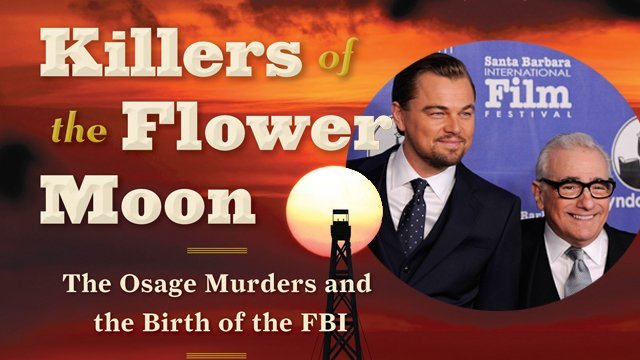
- Details
- By Rich Tupica
After months of negotiations, the upcoming Martin Scorsese film Killers Of The Flower Moon, which is centered on decades-old Osage Nation murder cases, will be an Apple original film, but Paramount will still distribute the flick theatrically worldwide. Initially, Netflix was also in talks to distribute the colossal $200 million project, which features an A-list cast, including both Leonardo DiCaprio and Robert De Niro in lead roles. While the deal has yet to be officially announced, Deadline is reporting that the “tug of war over one of the highest profile films in Hollywood is about over” after Rick Yorn, the manager of Scorsese and DiCaprio, has allegedly come to an agreement with Apple executives.
Wheeling and dealing with streaming services is nothing new for the iconic director. Scorsese’s last movie, The Irishman, was distributed through Netflix and scored a handful of Academy Award nominations. While it saw a limited run in the theaters, it’s main distribution came from streaming on Netflix. Killers of the Flower Moon, which is based on a 2017 book, is tentatively set for a 2021 release and recounts the story of Osage Nation members who were murdered under mysterious circumstances in the 1920s. The killings sparked a landmark F.B.I. investigation involving J. Edgar Hoover.
Aside from the plot, another American Indian connection to the forthcoming film is legendary musician Robbie Roberton, who is scoring music for Killers of the Flower Moon. The rock icon, who comes from Mohawk and Cayuga descent, spoke last month about the project, as the COVID-19 derailed the film’s production.
“And although everything’s been delayed, I’ve even started some early discovery and thinking of the music for Martin Scorsese’s next movie, Killers of the Flower Moon,” Robertson told Rolling Stone. “It’s an American Indian story, so I’ve got a lot to do on this. And the rest of it, I guess, is just really kind of adapting and dealing with being on house arrest.”
More Stories Like This
Native News Weekly (August 25, 2024): D.C. BriefsUS Presidents in Their Own Words Concerning American Indians
Native News Weekly (December 7, 2025): D.C. Briefs
Why We Report: Chez Oxendine Shares His Story for Native News Online’s Year-End Campaign
New Amnesty International Report Details Torture, Overcrowding at Krome and ‘Alligator Alcatraz’
Help us defend tribal sovereignty.
At Native News Online, our mission is rooted in telling the stories that strengthen sovereignty and uplift Indigenous voices — not just at year’s end, but every single day.
Because of your generosity last year, we were able to keep our reporters on the ground in tribal communities, at national gatherings and in the halls of Congress — covering the issues that matter most to Indian Country: sovereignty, culture, education, health and economic opportunity.
That support sustained us through a tough year in 2025. Now, as we look to the year ahead, we need your help right now to ensure warrior journalism remains strong — reporting that defends tribal sovereignty, amplifies Native truth, and holds power accountable.
 The stakes couldn't be higher. Your support keeps Native voices heard, Native stories told and Native sovereignty defended.
The stakes couldn't be higher. Your support keeps Native voices heard, Native stories told and Native sovereignty defended.
Stand with Warrior Journalism today.
Levi Rickert (Potawatomi), Editor & Publisher
